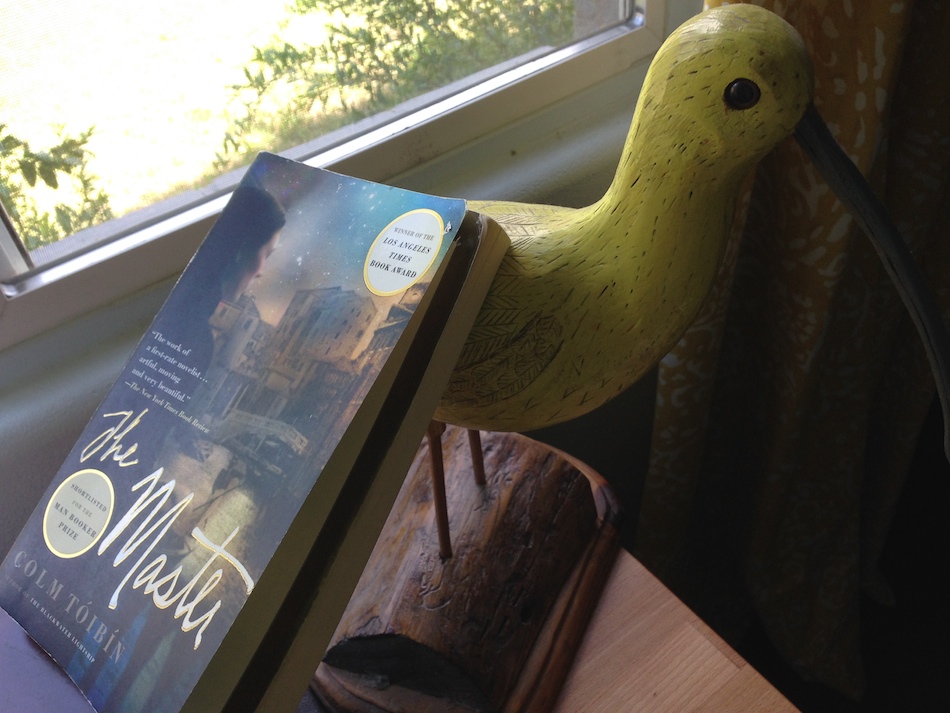The Snark of Sympathy (Colm Tóibín on Henry James)
If I were to visualize a network in Colm Tóibín’s wonderful novelized biography of Henry James, The Master (2011), it would connect the levellers and targets of snark. Alice James would shine brightly as one of the most prominent levellers, while Henry would shine out as the most frequent target. But do not expect that a thick line would connect Alice-as-leveller to Henry-as-target: Alice rather seems to perform snark on Henry’s behalf, as Tóibín’s Henry is nothing if not a sponge specifically composed for absorbing snark in 1895-1899, the years covered in this hybrid biography.
The spectacular failure of Guy Domville on the London stage and the trial against Oscar Wilde, both occurring in 1895, conspire to open this floodgate of snark. It is not, of course, any personal connection with Wilde’s case, but the rush of public discourse about homosexuality that loosened the tongues of many interlocutors who had probably wanted to question, or merely allude to, James’s sexuality. Nor is it that, in The Master at least, his failure as a playwright prompts James’s doubt as to the quality of his writing in general (his triumphant rebuttal of his brother William’s criticisms, in what is probably Henry’s only appearance as a leveller of snark, makes this clear). Rather, Tóibín seems to suggest that this moment of pause in James’s career breaks down the continuity in the elaborate wall of work that insulated him from any sense of responsibility for the loneliness of Minny Temple and Constance Feminore Cooper at their deaths.
So long as the work held out, so did the justification for somewhat ruthlessly sacrificing personal relationships for the sake of the solitude that he claimed was necessary for that work.
With infinite patience Tóibín crafts dramatic dialogue that places James on the rack, giving characters that power of “saying the unsayable” associated with James himself—effectively turning James’s own writing techniques on himself. Society hostesses, politicians, and childhood friends accuse him of abandoning his Irish ancestors (the M. P. Webster and Lady Wolseley in chapter 2), Minny Temple (Oliver Wendell Holmes in chapter 5), Constance Fenimore Cooper (Lily Norton in chapter 8), and even the United States in general by not volunteering for war (his own father in chapter 7), and try to force him to admit his sexuality (Lady Wolseley in chapter 2, Edmund Gosse in chapter 4). The puzzle pieces of confrontations and writing sessions—for what comes between attacks are elegaic and beautiful representations of James writing at Lamb House—click together in chapter 10, in which the Baroness von Rabe accuses the youthful James of having given many marriageable young ladies the wrong impression as he used them for “gathering material”.
The scenes set at James’s Lamb House seem to be the only narration disconnected from these many kinds of abandonment. It is a place of artistic production, physical pleasure, simple pride, and, in the final chapter, a brief rekindling of familial intimacy. (And now, thanks to Tóibín, I feel a strong need to visit Rye to commune more directly with Lamb House.) By alternating between rhapsodic interludes at Lamb House and scenes of vicious but subtle verbal attack, mostly leveled outside of Lamb House—Lily Norton’s scene is the exception—Tóibín cautiously purchases the lush and happy calm of the Rye interludes, balancing the books of his sentimental economy.
In doing so, Tóibín effectively serves as Henry’s moral wing-man. “See?” his James tacitly warns us. “See what happens every time I forfeit my solitude?” The structure of The Master backs up James’s claims that his career required distance from those (mostly women) who demanded more attention from him. To be fair, Tóibín makes it quite clear that James deeply regretted some of the choices he made to preserve his solitude. In particular, the heart-rending sections on Constance Fenimore Cooper do justice to Cooper as a multi-layered, enigmatic writer who gave James as much food for thought as he gave her.
What really interests me is the way that Tóibín preserves our sympathy for James by exposing him to such shocking yet civilized accusations from a variety of friends and relatives. Whether his avoidance of intimacy was callous or necessary (I would say both), its sets him up as one of his own characters, subject to difficult and dramatic conversations whose meaning accrues by way of what is not said. Tóibín thus pays James perhaps the sincerest postmodern compliment: the flattery of meta-imitation.
Only when the pattern changes ubruptly in the final chapter does James find some consolation. In this chapter (spoiler alert? I guess?), his brother and sister-in-law, William and Alice James, convey a soothing message from their (dead) mother through a medium they repeatedly consulted. James disapproves of this method yet finds comfort in the fact that the medium, impossibly, described the memento he took from Cooper’s apartment and the statue he bought by Hendrick Andersen. Ultimately, despite all of James’s defensive tactics—silence, irony, offense, deflection, reasoned argumentation—the objects in Lamb House indiscreetly divulge his conflicted personal attachments, while impossible statements from his dead mother even more indiscreetly pardon him for them.
James could not find release in the narrative methods he himself perfected; they merely preserve his dilemmas in fiendishly composed snark chambers that are agonizing for readers to the precise degree that they are exquisite. Tóibín’s method may elicit sympathy from readers, who cringe at The Master being made such a punching-bag, but it does not release James from the cycle of guilt at the heart of The Master. The sympathy of snark relieves only just enough moral pressure to allow us to feel offended when the next scene of accusation begins.
